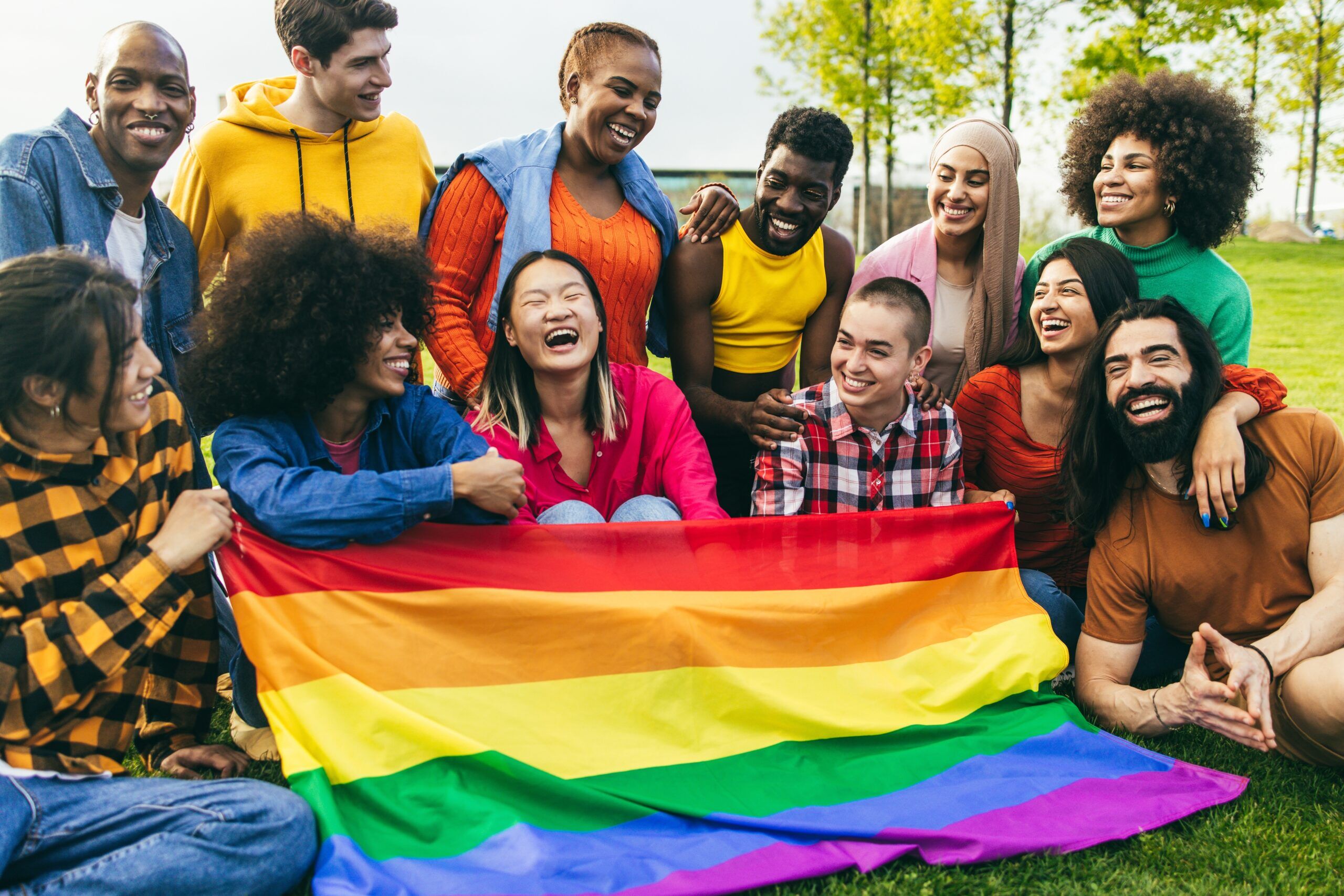While conversations around LGBTQ+ rights increasingly recognize the struggles of LGBTQ+ youth in educational settings, the indispensable role played by organizations like the Gender and Sexuality Alliance (GSA) often remains obscured.
In the intricate tapestry of LGBTQ+ experiences, organizations like the GSA network serve as vital threads, weaving connection, community, and empowerment. Gill Platek, a stalwart GSA organizer, sheds light on the profound impact these alliances have on the lives of young individuals, a significance heightened in the face of legislative challenges.
Related:
Research says that Black queer youth experience widespread discrimination and social rejection
Advocates are using this research to create better safe spaces for Black LGBTQ+ youth
Platek underscores the transformative nature of GSA networks, telling LGBTQ Nation, “It gives [kids] the chance to build community and relationships, network, and a sense that they can talk to youth from other areas, forge connections, and come together to create the liberation they seek.”
Dive deeper every day
Join our newsletter for thought-provoking commentary that goes beyond the surface of LGBTQ+ issues
Platek emphasizes the need for resources, especially for parents of LGBTQ+ children, allies, and advisors. The sentiment is echoed by parents navigating the complexities of the educational system, expressing a sense of feeling lost and overwhelmed.
Anti-LGBTQ+ legislative proposals seeking to limit students’ rights cast a shadow over the ability of LGBTQ+ youth to express their identities freely. Many of these measures target the very essence of self-identification, attempting to control names and pronouns and forcing students to use facilities that do not match their gender.
Amidst legislative sessions and looming elections, the significance of resources to help LGBTQ+ youth should take center stage.
According to the Trevor Project, a staggering 86% of transgender and nonbinary youth report that recent debates around anti-trans bills have negatively impacted their mental health. As a direct consequence of these policies and debates, 45% of trans youth experienced cyberbullying in the last year and nearly 1 in 3 reported not feeling safe to go to the doctor or hospital when they were sick or injured.
These distressing statistics underscore the urgency of organizations like the GSA network. By providing a supportive space, GSA networks become critical lifelines for LGBTQ+ youth navigating the turbulent waters of legislative hostility. GSA networks offer solace, resources, and a sense of belonging that counteracts the mental health toll inflicted by anti-trans bills.
Further emphasizing the broader challenges faced by LGBTQ+ youth, the Trevor Project reveals that 75% of LGBTQ youth experience stress or anxiety due to both anti-LGBTQ+ hate crimes and threats against LGBTQ+ spaces. Additionally, at least 70% of LGBTQ+ youth stress over issues like police brutality, firearms access, efforts to restrict reproductive rights, and financial insecurity.
In response to these pervasive stressors, GSA networks act as crucial pillars of support, creating spaces where LGBTQ+ youth can find resilience, connection, and empowerment with resources like Back to School Queer Survival Guide and Trans & Queer Youth Virtual Power! Training Video Series.
“Students in schools with GSAs report lower mental and physical health concerns, greater overall well-being, less drug use, less truancy, and greater perceived school safety than students in schools without GSAs,” states a 2017 article in American Educator. It adds that these findings have been documented in a variety of studies at both local and national levels.
In an era where the rights of transgender youth are under siege, the work of GSA networks stands as a beacon of hope, promoting a future where every individual can thrive, regardless of their gender identity. As we confront legislative headwinds, the stories and impact of GSA networks serve as a powerful reminder of the resilience and strength embedded within the LGBTQ+ community.
If you or someone you know is struggling or in crisis, help is available. Call or text 988 or chat at 988lifeline.org. The Trans Lifeline (1-877-565-8860) is staffed by trans people and will not contact law enforcement. The Trevor Project provides a safe, judgement-free place to talk for youth via chat, text (678-678), or phone (1-866-488-7386). Help is available at all three resources in English and Spanish.
Don't forget to share:















Gender & sexuality alliances keep LGBTQ+ youth safe. We cannot afford to underestimate their power.